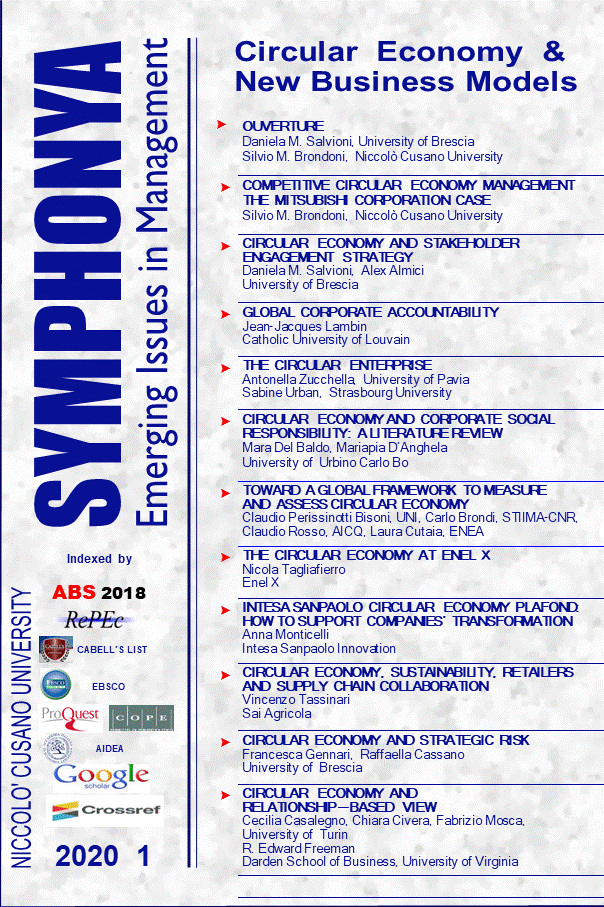Competitive Circular Economy Management. The Mitsubishi Corporation Case
DOI:
https://doi.org/10.4468/2020.1.02brondoniKeywords:
Circular Economy, Competitive Circular Economy, Oversize Economy, Mitsubishi Corporation, Mitsubishi Mineral Resources Group, Recycling, Global Markets, Global CompetitionAbstract
In today’s scenario of ‘hyper competition’, global corporations face many other MNCs (more and more frequently based in the US, China, South Korea, Taiwan and Europe). In oversize economy, global companies move to adopt closed innovation policies. In particular, the circular economy suggests that sustainable outputs can be achieved without loss of revenue or extra costs for global manufacturers. The transformation from MNCs to global networks has led towards vertical specialization and highly diversified patterns of collaboration through inter-firm and intra-firm transactions coordinated by global corporations. As we can see from the experience of the greatest global corporations (e.g., Mitsubishi Corporation), the biggest global companies see the circular economy as a specific tool to compete, in the context of a network vision (competitive circular economy management).
Downloads
Published
How to Cite
Issue
Section
License
The authors retain all rights to the original work without any restrictions.
License for Published Contents

You are free to copy, distribute and transmit the work, and to adapt the work. You must attribute the work in the manner specified by the author or licensor (but not in any way that suggests that they endorse you or your use of the work).
License for Metadata

Symphonya published articles metadata are dedicated to the public domain by waiving all publisher's rights to the work worldwide under copyright law, including all related and neighboring rights, to the extent allowed by law.
You can copy, modify, distribute and perform the work, even for commercial purposes, all without asking permission.



